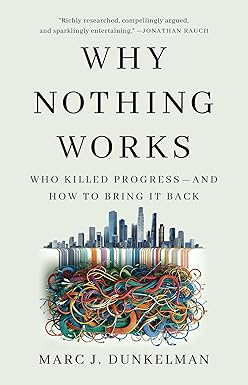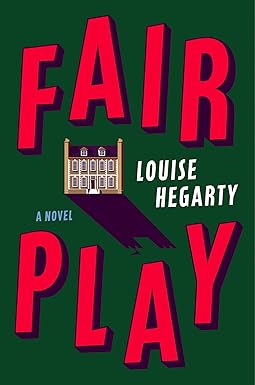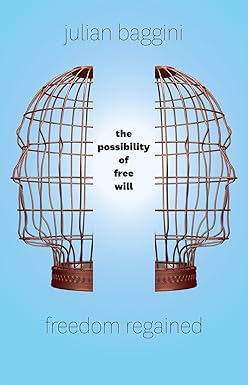I've been pretty slipshod over the years about Juneteenth. Let me change that with a relevant Coleman Hughes article, describing What American Students Aren’t Taught About Slavery.
It took almost two and a half years for the Emancipation Proclamation to make its way to Galveston, Texas, where it was read aloud on June 19, 1865, celebrated today as Juneteenth. It took a good deal longer for slavery to get its due in history books, Hollywood movies, or daily discourse. But the days when slavery was airbrushed out of movies, minimized as the cause of the Civil War, and considered too taboo for polite company are long gone.
For the past several decades, American elites have been fixated on the topic. From Roots, the highest rated TV show of the 1970s, to “The Case for Reparations,” 12 Years a Slave, and The 1619 Project, America’s filmmakers, journalists, and influencers have created an enormous stream serving a common thesis: that the legacy of slavery, America’s “original sin,” is vast, deep, and everlasting. This Juneteenth seems like a good time to take stock of how we remember slavery, what we forget, and what our approach to the past means for our future.
[…]
In the popular press, no corner of American society has escaped the accusation of being “rooted” in slavery. The list includes: the Kentucky Derby, capitalism, asset depreciation, double-entry accounting, Excel spreadsheets, gynecology, tipping, mass incarceration, the Second Amendment, prison labor, at-will employment, work requirements for welfare, the police, the electoral college, Jack Daniel’s whiskey, fine dining, abortion bans, coffee, the American childcare system, Wall Street, America’s food system, Brooks Brothers, U.S. currency, the word cakewalk, and the obesity crisis.
Cakewalk?! Well, sure: Wikipedia has an article.
But Coleman provides balance to the story of slavery: it wasn't confined to America, and it wasn't just Blacks. His students were dumbfounded to be told.
Also of note:
-
Only safely viewable from a distance, preferably hundreds of miles. Jeffrey Blehar confesses: New York’s Mayoral Race Is a Glorious Dumpster Fire, And I Love It. (NR gifted link)
Among the choices, Eric Adams; Andrew Cuomo ("Governor Nosferatu"); and…
Meanwhile, New York City progressives hate Cuomo every bit as much as they hate Adams, and they have chosen to rally — with their typical semireligious fervor — around State Assemblyman Zohran Mamdani. Mamdani, the Indian-Ugandan Muslim son of a filmmaker and a Columbia University poli-sci professor, might as well have been purpose-built by Soros-funded scientists in a lab to activate every fashionably progressive erogenous zone in city politics.
A handsome and affable public speaker, Mamdani thrills crowds of educated hyper-woke young white women with his visions of a “more equitable” New York: He is a member of the Democratic Socialists of America. He calls for universal health care and the increased use of “social workers” as opposed to police. He promises to eliminate bus fares, open city-run grocery stores, and institute rent freezes. Do you even need to ask whether Zohran embraces the full spectrum of the LGBT rainbow? He’s so woke his own biography is practically the living embodiment of the DEI ideal.
And on international affairs — something that actually matters for the mayor of New York, the world’s most important city and home of the United Nations — he is unspeakably awful.
He is a vocal supporter of the boycott, divestment, and sanctions movement that has plagued college campuses and academic institutions over the past 15 years. He openly labels Israel’s war in Gaza a “genocide.” Just yesterday, in an interview with Tim Miller of The Bulwark, Mamdani refused to condemn the phrase “Globalize the intifada,” saying that, when he hears those chants, “What I hear . . . is a desperate desire for equality and equal rights in standing up for Palestinian human rights.” He further embarrassed himself by saying “intifada” was how the Holocaust Museum translates the Warsaw Ghetto “uprising” into Arabic, as if the two were functionally equivalent. (The problem, of course, is that Mamdani sincerely believes they are.)
Long excerpt, free link. Check it out.
-
And has she been fired yet? Jeff Maurer wonders: What, In Theory, Is Tulsi Gabbard's Job? (His subhed: "Tulsi: What would you say ya do here?")
Yesterday, Trump had this to say about Director of National Intelligence Tulsi Gabbard’s assessment of Iran’s nuclear program:
“I don't care what she said.”
I think this was a rare shrewd assessment from the president. Trump and I don’t agree often, but we’re definitely on the same page here. Here is a partial list of people I would rather the president listen to than Tulsi Gabbard on foreign policy matters:
Jared Kushner
The “Son of Sam” dog
Chat GPT
Laffy Taffy wrappers
A pig that makes foreign policy decisions by eating from troughs labeled “bomb” and “do not bomb”
The Great Gazoo
Beatles records played backwards
An infinite number of monkeys at an infinite number of typewriters
Trump’s comment wasn’t a one-off; Gabbard appears to have been sidelined. Axios reports that Trump’s “entire top foreign policy team” recently met at Camp David to discuss Israel and Iran, but notes that Trump’s top foreign policy team doesn’t include Gabbard. That seems…strange — she’s technically the director of national intelligence. If the president held a summit of Chinese-American cellists and didn’t invite Yo-Yo Ma, I don’t think I’d be nuts to assume that the president might have some beef with Yo-Yo Ma.
A quick Googling shows she hasn't quit yet. In theory, the DNI might be a useful and important component of a foreign policy structure. Hey, maybe bring back John Bolton!
-
Fire away! Noah Smith looks at some poor polemical marksmanship: Progressives take their best shot at Abundance (but it falls short).
It continues to be the case that almost none of Abundance’s critics seem to have actually read the book. The first wave of critics basically ignored the ideas in it, and talked about their own ideas instead. Later critics became more aggressive, frenetically lobbing insult-words at the authors — “libertarian”, “Republican”, “oligarch-funded”, etc. — that completely ignored the book’s argument that excessive regulation is holding back big government. Occasionally, these shouters would admit that they had not, in fact, read the book they were insulting.
What explains this frantic, scrambling assault? I have no doubt that many progressives instinctively feel that anyone who criticizes any kind of regulation is a small-government pro-corporate neoliberal. But Marc J. Dunkelman’s book Why Nothing Works — which makes the same exact point as Abundance, with more depth on the history and legal details of anti-government regulation — has provoked no such outpouring of vitriol.
My best guess is that it’s not the ideas in Abundance that frightened progressives, but the identities of the authors — or, more specifically, one of the authors. Marc J. Dunkelman is a bookish academic, and Derek Thompson is a well-read wonkish opinion writer, but Ezra Klein is a powerful tastemaker and arbiter of opinion within the Democratic party. If Ezra Klein says that it’s time for the Democrats to start concentrating their energies on raising state capacity, then there’s a good chance that five years later, “raising state capacity” is what the party will be all about.
My best guess is that it’s not the ideas in Abundance that frightened progressives, but the identities of the authors — or, more specifically, one of the authors. Marc J. Dunkelman is a bookish academic, and Derek Thompson is a well-read wonkish opinion writer, but Ezra Klein is a powerful tastemaker and arbiter of opinion within the Democratic party. If Ezra Klein says that it’s time for the Democrats to start concentrating their energies on raising state capacity, then there’s a good chance that five years later, “raising state capacity” is what the party will be all about.
I recently read the Dunkelman book — my report here — and wasn't too impressed. Although it did a pretty good job of convincing me that Progressivism isn't a very coherent political philosophy.
![[Exoplanet System]](https://imgs.xkcd.com/comics/exoplanet_system.png)
![[Amazon Link]](/ps/asin_imgs/0226832937.jpg)

![[Amazon Link]](/ps/asin_imgs/019938892X.jpg)



![[Amazon Link]](/ps/asin_imgs/0374610223.jpg)


![[Amazon Link]](/ps/asin_imgs/1541604555.jpg)

![[The Blogger and His Dog]](/ps/images/me_with_barney.jpg)



